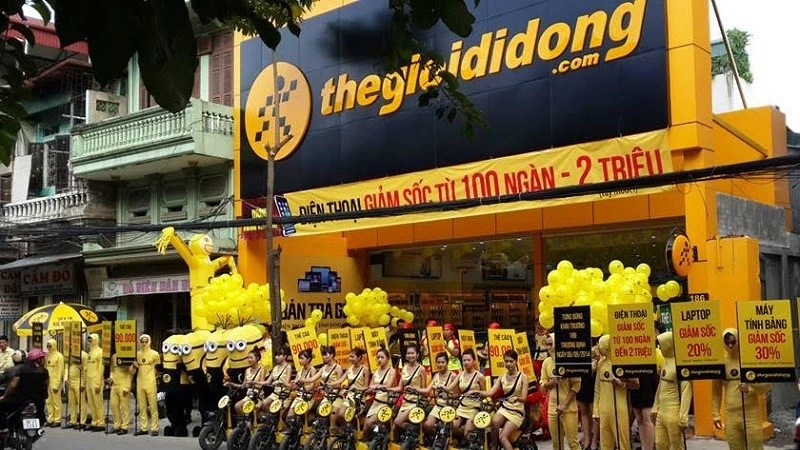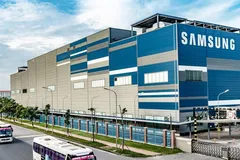
PE investment never simple
The image of PE is often too attractive, showing huge profitable deals, such as the MEF II fund managed by Mekong Capital which poured USD 3.5 million into the Mobile World Group (MWG) when the company was still unlisted in 2007, to own 35% of shares, and by the end of the divestment in early 2018 had earned nearly USD 200 million, 57 times the profit. In the field of restaurant chains, MEF II also successfully divested its investment in Golden Gate, which owns popular restaurants such as Kichi-Kichi conveyor hotpot, SumoBBQ, Ashima, and Gogi House, showing nine times more than initial investment.
However, PE investment is not all pink. For example, VinaCapital, one of the most famous fund management companies in Vietnam, has not succeeded as expected in some PE businesses.
The most typical failure was that of the VOF fund deal in February 2018 managed by VinaCapital, which poured capital into Ba Huan, one of the major brands in the food industry. But after six months, VinaCapital had to withdraw. The two deals VinaCapital participated in many years ago such as Yen Viet and IDP International Milk, saw spectacular launches but have not shown any significant resilience despite the pouring in of so much money. To date, the Yen Viet brand has remained as an average brand compared to other brands such as Khanh Hoa Salanganes Nest, or IDP brand dairy products such as Ba Vi, Kun or Lif, which also do not stand a chance compared to products of Vinamilk and TH True Milk. Underperforming deals, however, did not reduce VinaCapital as a leading fund manager, but it pointed out that PE investment is never very simple.
In the case of VinaCapital, it can be seen as normal for Mon Hue and Pho Ong Hung restaurants owned by Huy Viet Nam to close after receiving millions in US dollars in investments. Certainly, the experience and capability of fund investors in Huy Viet Nam such as ADV Partners, AIF Capital, F&H Fenghe, Fortress Investments, Gryphus Capital, and Welkin Capital, cannot surpass Mekong Capital or VinaCapital. And when VinaCapital was "stuck" with some investments, other organizations losing money at Huy Viet Nam were not surprised.
Constraints on information disclosure
Therefore, the organization suing Mr. Huy Nhat, founder of Huy Viet Nam, should also be seen from two perspectives. Firstly, the act of suing by fund investors is a bona fide act, to protect their rights, but it is necessary to find suitable evidence first. For example, if there is still cash on the Mon Hue account book, but in reality there is no money left to pay, this could indicate clearly that money was taken out, which can become an important evidence for suing.
Secondly, notwithstanding the outcome of the lawsuit, or whether the fund is reclaimed or not, pouring in capital and then getting caught in dubious troubles is a failure in investment. No one could have anticipated this situation, because if they had known it, they would not have invested in the first place.
Unlike investing in the listed market, PE investment has many constraints on information disclosure from businesses. This means that business information of Huy Viet Nam is provided to investors if only they have an agreement. While listed companies are required to disclose information, so that the public, whether it is a shareholder or not, can have a grasp of it. Private equity deals also have valid reasons for not disclosing information. They must keep the activities of both seller and buyer confidential, and above all, it should be accepted by the market. Around the world, there have even been claims that PE investment activities should be made more public, but investors think that if they have internal control, follow legal compliances, and are being responsible to investors, that is enough.
To pinpoint an exact cause or reason is difficult, but it is important to note that the value of a retail chain can be a buoy for many parties to cling on to. This means that although Mon Hue and Pho Ong Hung were facing difficulties, hundreds of shops across the entire country, in prime locations, are at a profitable advantage, and even if they are termed as a corpse they can still sell for a huge amount of money.
The process of raising capital in private companies faces many rounds, and fund investors after a period of time can exit to join another investor. Thus, it is possible that the fund investor expected to exit Huy Viet Nam before the worst case scenario occurred, while the companies were expected to continue running the chain, even opening the factory, to mobilize more capital from other investors as well.
Normally, with venture capital activities for startups, the capital contribution in ten deals may see only one or two profitable deals, which would be considered successful, because the profit from a startup can go up a few dozen times or more. As for PE investment activities, companies in good shape and having a good business model quite clearly require about five profitable deals to consider a profit, as with two to three deals profits are break even, but under that is a loss. All the same, losses are inevitable in investment activities, and the key is to learn from lessons after any unfavorable deal.




















